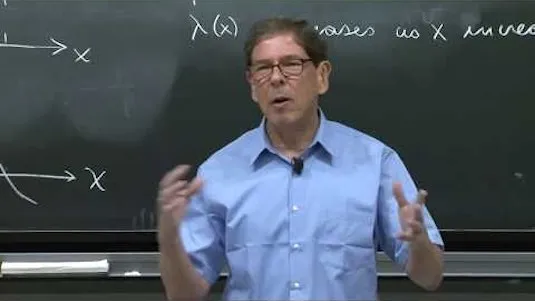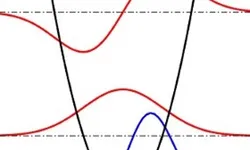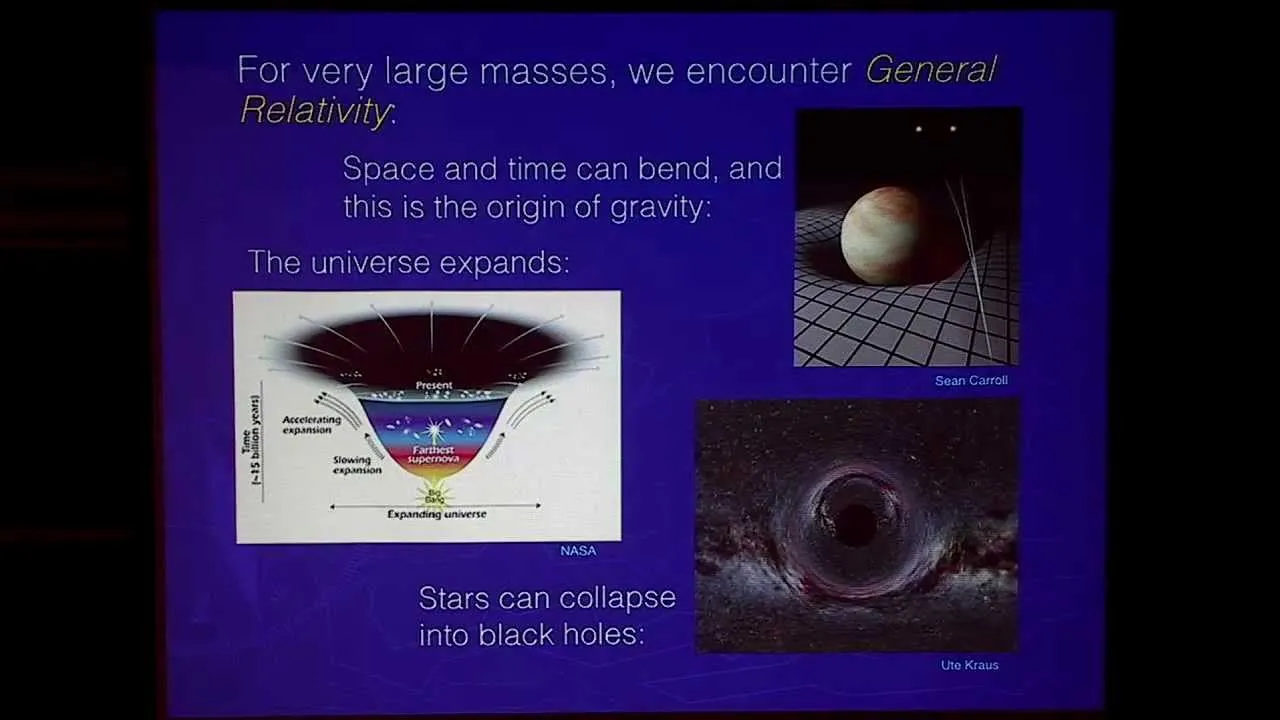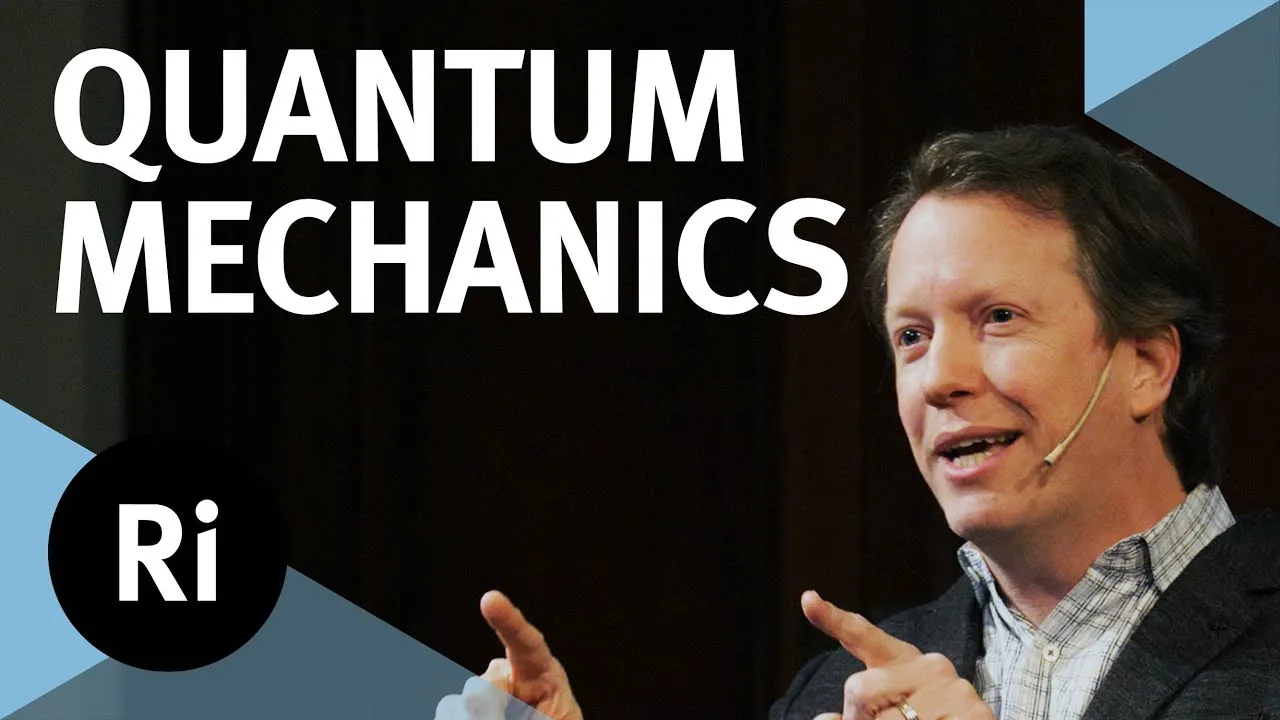
Quantum Mechanics: Quantum physics in 1D Potentials 
This course provides an introduction to quantum mechanics by exploring the Schrodinger equation in one-dimensional potentials. Students will learn to calculate energy eigenstates and bound states, and gain an understanding of the physical implications of these results. The course is designed to give a comprehensive overview of quantum physics. ▼
ADVERTISEMENT
Course Feature
![]() Cost:
Cost:
Free
![]() Provider:
Provider:
Edx
![]() Certificate:
Certificate:
No Information
![]() Language:
Language:
English
![]() Start Date:
Start Date:
31st Oct, 2018
Course Overview
❗The content presented here is sourced directly from Edx platform. For comprehensive course details, including enrollment information, simply click on the 'Go to class' link on our website.
Updated in [March 06th, 2023]
Quantum Mechanics is a fundamental branch of physics that studies the behavior of matter and energy at the atomic and subatomic level. This course, Quantum Mechanics: Quantum Physics in 1D Potentials, is the second in a series of three courses that will provide learners with a comprehensive introduction to the field. Learners will gain a concrete understanding of quantum mechanics by learning to solve the Schrodinger equation for important classes of one-dimensional potentials. They will study the associated energy eigenstates and bound states, and will be able to solve the harmonic oscillator using both the differential equation and algebraically, using creation and annihilation operators.
This course is based on MIT 8.04: Quantum Mechanics I, and follows the same rigorous standards as the on-campus version. After completing the 8.04x series, learners will be ready to tackle the Mastering Quantum Mechanics course series on edX, 8.05x.
This course is ideal for learners who are interested in pursuing a career in physics, engineering, or any other field related to quantum physics. It is also suitable for those who are looking to gain a deeper understanding of quantum mechanics and its applications. Learners will gain a comprehensive understanding of the fundamentals of quantum mechanics, and will be able to apply their knowledge to solve complex problems.
[Applications]
After completing this course, Quantum Mechanics: Quantum Physics in 1D Potentials, learners will be able to apply their knowledge to solve the Schrodinger equation for important classes of one-dimensional potentials. They will be able to identify the associated energy eigenstates and bound states, and solve the harmonic oscillator using the differential equation as well as algebraically, using creation and annihilation operators. Learners will also be prepared to tackle the Mastering Quantum Mechanics course series on edX, 8.05x.
[Career Paths]
1. Quantum Physicist: Quantum physicists use the principles of quantum mechanics to study and understand the behavior of matter and energy at the atomic and subatomic level. They develop theories and models to explain the behavior of particles and systems, and use their knowledge to develop new technologies and materials. As quantum technology advances, the demand for quantum physicists is expected to increase.
2. Quantum Engineer: Quantum engineers use the principles of quantum mechanics to design and develop new technologies and materials. They work with quantum physicists to develop new technologies and materials, and use their knowledge to create new products and services. As quantum technology advances, the demand for quantum engineers is expected to increase.
3. Quantum Computing Researcher: Quantum computing researchers use the principles of quantum mechanics to develop new algorithms and technologies for quantum computers. They work with quantum physicists and engineers to develop new algorithms and technologies, and use their knowledge to create new products and services. As quantum computing advances, the demand for quantum computing researchers is expected to increase.
4. Quantum Information Scientist: Quantum information scientists use the principles of quantum mechanics to study and understand the behavior of information at the atomic and subatomic level. They develop theories and models to explain the behavior of information, and use their knowledge to develop new technologies and materials. As quantum technology advances, the demand for quantum information scientists is expected to increase.
[Education Paths]
Recommended degree paths:
1. Bachelor of Science in Physics: This degree program provides a comprehensive overview of the fundamentals of physics, including quantum mechanics, and prepares students for advanced studies in the field. Students will learn about the principles of quantum mechanics, wave functions, operators, and expectation values. They will also gain an understanding of the mathematical tools used to solve problems in quantum mechanics. This degree program is ideal for those interested in pursuing a career in physics or related fields.
2. Master of Science in Quantum Mechanics: This degree program provides a more in-depth look at the principles of quantum mechanics and its applications. Students will learn about the mathematical tools used to solve problems in quantum mechanics, as well as the principles of wave functions, operators, and expectation values. They will also gain an understanding of the physical and mathematical principles of quantum mechanics and its applications in various fields. This degree program is ideal for those interested in pursuing a career in quantum mechanics or related fields.
3. Doctor of Philosophy in Quantum Mechanics: This degree program provides an in-depth look at the principles of quantum mechanics and its applications. Students will learn about the mathematical tools used to solve problems in quantum mechanics, as well as the principles of wave functions, operators, and expectation values. They will also gain an understanding of the physical and mathematical principles of quantum mechanics and its applications in various fields. This degree program is ideal for those interested in pursuing a career in quantum mechanics or related fields.
Developing trends:
1. Quantum Computing: Quantum computing is an emerging field that uses the principles of quantum mechanics to solve complex problems. This field is rapidly growing and is expected to revolutionize the way we process data and solve problems.
2. Quantum Sensors: Quantum sensors are devices that use the principles of quantum mechanics to measure physical properties. These sensors are becoming increasingly popular and are being used in a variety of applications, such as medical imaging, navigation, and environmental monitoring.
3. Quantum Materials: Quantum materials are materials that exhibit quantum mechanical properties. These materials are being used in a variety of applications, such as quantum computing, quantum sensing, and quantum communication.
Course Provider

Provider Edx's Stats at AZClass
Quantum Mechanics: Quantum physics in 1D Potentials introduces quantum mechanics by exploring the Schrödinger equation in one-dimensional potentials. Students will learn to compute energies of eigenstates and bound states and understand the physical implications of these results. This course aims to provide a comprehensive overview of quantum physics. Quantum mechanics is a fundamental branch of physics that studies the behavior of matter and energy at the atomic and subatomic levels. This course, Quantum Mechanics: Quantum Physics in Potentials in One Dimension, is the second of three courses and will provide learners with a comprehensive introduction to the field.
Discussion and Reviews
0.0 (Based on 0 reviews)
Explore Similar Online Courses

RPA & Workflow Automation: Executive Briefing

Yogananda Meditation For Deep Daily Practice

Python for Informatics: Exploring Information

Social Network Analysis

Introduction to Systematic Review and Meta-Analysis

The Analytics Edge

DCO042 - Python For Informatics

Causal Diagrams: Draw Your Assumptions Before Your Conclusions

Whole genome sequencing of bacterial genomes - tools and applications

Foundations of Quantum Mechanics

Gravity and Quantum Mechanics - The Quest for Unification


Start your review of Quantum Mechanics: Quantum physics in 1D Potentials